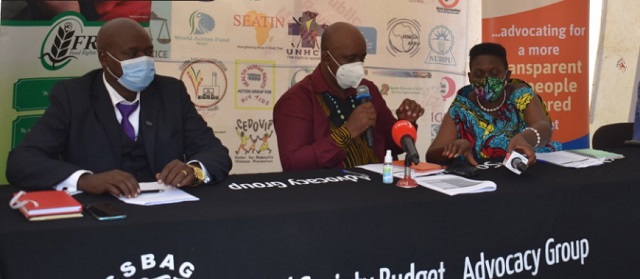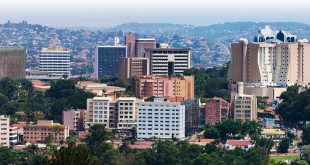
Budget analysts suggests that government focuses on domestic revenue mobilisation and external borrowing to boost economy in FY2021/2022
Kampala, Uganda | JULIUS BUSINGE | Coronavirus pandemic, economy, donor support, government spending are the main factors that will determine the design, implementation and success of the new budget for FY2021/22, according to members of the Civil Society Budget Advocacy Group (CSBAG) and economic experts.
The National Budget Framework Paper (NBFP) for the Financial Year 2021/22 was presented to Parliament for scrutiny in December 2020 by the Minister of Finance Planning and Economic Development, Matia Kasaija.
The FY2021/22 NBFP comes at a time the country is still struggling with the effects of COVID-19 pandemic, locust invasion, floods and landslides.
The new budget will also be implemented by a new government coming into force in May this year headed by President Yoweri Museveni who was re-elected for the 6th term on Jan. 14.
Budget analysts anticipate that the Ministry of Finance, Parliament, civil society and academia will come up with a befitting budget that is in line with the effects of COVID-19 and disasters.
Julius Mukunda, the coordinator of CSBAG said on Jan.24, that FY2021/22 NBFP is currently under consideration amidst the country’s general elections that distorted the budgeting process timelines at parliament level.
“Whereas the Public Finance Management Act, 2015 provides for at least a month for Parliament to consult, debate and consider the NBFP, this has been condensed to two days,” Mukunda said, adding, “this limits proper scrutiny of the budget as well citizens’ rights to input as Parliament has not provided a platform for stakeholders’ consultation.”
Meanwhile, Mukunda commends government on its stance to improve allocative efficiency as exhibited in FY2020/21 budget where over Shs3trillion was identified from consumptive expenditure and refocused to development expenditures as stated in the NBFP 2021/22.
“We hope this measure is maintained going forward,” Mukunda said.
Economic projections
According to government, in FY2021/22, the economy is expected to grow at 4.3% from a projection of 3.1% in FY2020/21. Inflation, on the other hand, is projected to reduce to 4.4% in FY2021/22 from 5.6% in FY2020/21 which lies within Bank of Uganda’s target of keeping inflation below 5%.
These are positive trends given the fact that the economy is still experiencing the effects of COVID 19 pandemic.
Resource envelope
The total resource envelope for FY2021/22 is projected to increase by a paltry Shs164billion – from Shs45.4tn in FY2020/21 to Shs45.6billion in the New Year.
Domestic revenue in the FY2021/22 is projected to decline by Shs116.5billion from Shs21.8tn in FY2020/21 to Shs21.6tn in the New Year.
Of the total domestic revenue in FY2021/22, Shs20.1trillion is projected to be raised from tax and Shs1.5tn from non-tax revenue.
With domestic revenue covering only 47.5% of the total budget for FY2021/22, the rest of the budget is to be funded through other avenues such as domestic borrowing (Shs2.4tn), external financing (Shs8.5tn), and budget support (Shs3.6tn), which is unsustainable.
Mukunda urges government to prioritize domestic revenue mobilization by continuously improving efficiency of revenue administration, and enhancement of institutional and human resource capacities.
In addition, URA and Uganda Communication Commission needs to develop and adopt a tax framework suited to regulate digital taxation in a bid to increase the tax base.
 The Independent Uganda: You get the Truth we Pay the Price
The Independent Uganda: You get the Truth we Pay the Price


